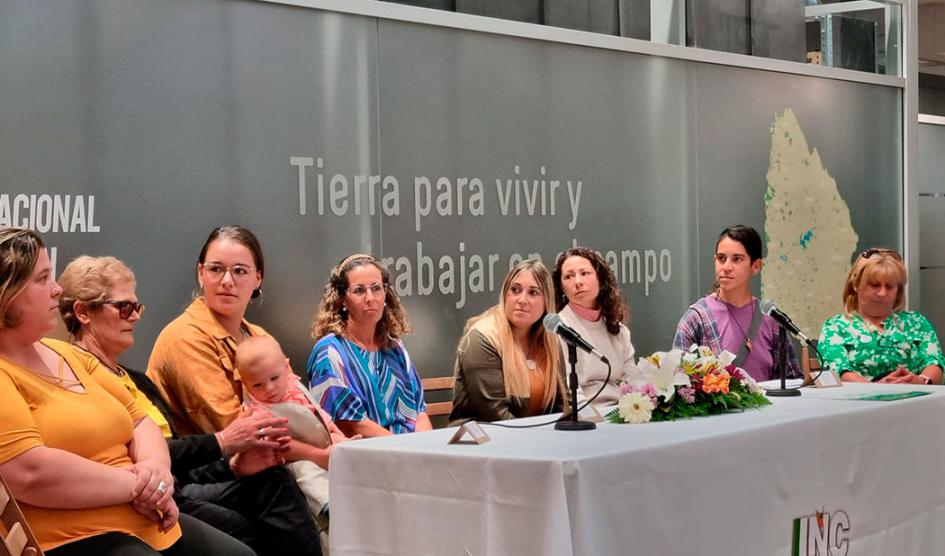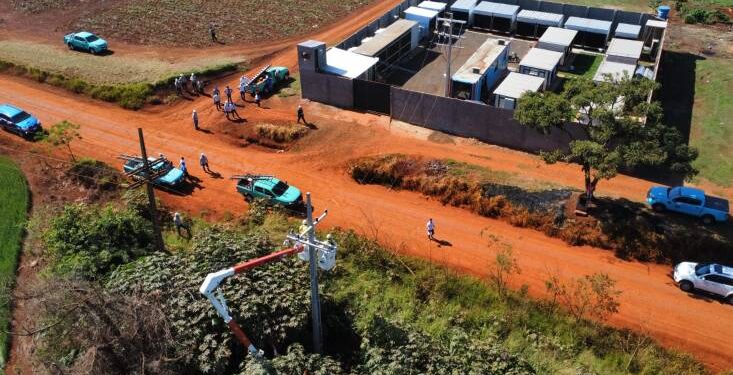Colonization will deliver land to groups of rural producers
Members of the Entre Ovejas y Cabras, Las Guacheras and Espina Amarilla groups were selected to exploit properties of the National Institute of Colonization in Canelones and Florida. Twelve women will carry out beekeeping, horticultural and sheep and cattle breeding activities on the land, which was delivered under lease. Currently the institute manages 400,000 hectares and works with 5,000 families.
This Tuesday the 28th, at the headquarters of the National Colonization Institute (INC), an act was held to award land to the three groups of rural women selected through open calls proposed by the institute. The properties are located in the departments of Canelones and Florida.
The president of the INC, Julio Cardozo; his vice president, Walter Rodríguez, and the general director of the Ministry of Livestock, Agriculture and Fisheries (MGAP), Fernanda Maldonado. Other authorities from both organizations also attended.
Currently, Colonization implements, among other actions, policies aimed at rural women and integrates the National Gender Plan in Agricultural Policies promoted by the ministry. These facts make it possible to focus public actions for rural women, while considering the environment and the development difficulties that arise in different dimensions, indicated the general director of MGAP, Fernanda Maldonado.
After the corresponding study on the postulated groups, Espina Amarilla, made up of five women, will access 11 hectares located in the city of Pando, where they will carry out horticultural and beekeeping activities.
For its part, the Ovejas y Cabras group, made up of three women, will obtain a fraction that exceeds 18 hectares in the Presbítero Juan Miguel Laguna neighborhood, near Canelones, where they will work raising sheep.
Meanwhile, the four members of Las Guacheras de Sarandí will manage more than 38 hectares in the Antonio María Fernández neighborhood, near Sarandí Grande, Florida, and will focus their work on cattle.
The president of the INC, Julio Cardozo, explained that the successful bidders will access the land through a lease modality and will undergo a two-year trial period. Subsequently, they may be confirmed as colonists for ten more years. In addition, in a complementary way to the evaluations, the institution monitors all the stages of the colony process, said the hierarch.
Cardozo added that this modality of delivery implies the fixing of an annual rent, which is made in semi-annual payments, while a guarantee is requested and the payment behavior is evaluated.
On the other hand, the head of Colonization emphasized that the Development Tables, the tours and the collection of information throughout the territory are fundamental pillars for the analysis of the situation of the field, of the demand, and of the possibilities of productive enterprises in different parts of the country. Then, based on the information collected, the calls for applicants are established. Currently, there are more than 1,200 applicants to exploit the institute’s property.
In addition, he maintained that the reality of women in the field has evolved. The activities that they carry out on the land are currently recognized as such, both in the conjugal-concubinary joint ownership, and in the responsibility of the property.
According to the Gender Report of the INC Monitoring and Evaluation Unit, published in December 2022, joint conjugal-concubinary ownership stood, in 2014, at 11% of female owners, and in 2021, it increased to 33%.







